- Home
- Robert Rankin
The Brightonomicon
The Brightonomicon Read online
Also by Robert Rankin:
The Brentford Trilogy:
The Antipope The Brentford Triangle
East of Ealing
The Sprouts of Wrath
The Brentford Chainstore Massacre
Sex and Drugs and Sausage Rolls
Knees Up Mother Earth
The Armageddon Trilogy:
Armageddon: The Musical
They Came and Ate Us
The Suburban Book of the Dead
Cornelius Murphy Trilogy:
The Book of Ultimate Truths
Raiders of the Lost Car Park
The Most Amazing Man Who Ever Lived
There is a secret trilogy in the middle there, comprised of:
The Trilogy That Dare Not Speak Its Name Trilogy:
Sprout Mask Replica
The Dance of the Voodoo Handbag
Waiting for Godalming
Plus some fabulous other books, including:
The Hollow Chocolate Bunnies of the Apocalypse
And its sequel:
The Toyminator
And then:
The Witches of Chiswick
The Brightonomicon
The Da-Da-De-Da-Da Code
Necrophenia
Retromancer
The Japanese Devil Fish Girl and Other Unnatural Attractions
THIS BOOK IS DEDICATED TO
THE PEOPLE OF BRIGHTON
Who are renowned for their
sense of humour
AND ALSO TO DAVE AND DEE
Who suggested that I dedicate
this book to the people of Brighton,
and remind them of their sense of humour,
in the hope that they would not tar and feather me.
Contents
Also by Robert Rankin
Title Page
Prologue
Chapter 1: The Hound of the Hangletons
Chapter 2: The Curious Case of the Centenary Centaur
Chapter 3: The monstrous mystery of the moulsecoomb Crab
Chapter 4: The Lansdowne Lioness
Chapter 5: The Curious Case of the Woodingdean Chameleon
Chapter 6: The Scintillating Story of the Sackville Scavenger
Chapter 7: The Fantastic Adventure of the Foredown Man
Chapter 8: The Baffling Business of the Bevendean Bat
Chapter 9: The Sensational Saga of the Saltdean Stallion
Chapter 10: The Birdman of Whitehawk
Chapter 11: The Wiseman of Withdean
Chapter 12: The Concluding Chaotic Conundrum of the Coldean Cat
Copyright
Prologue
It was the day before yesterday.
And I was dead.
I confess that I found this circumstance somewhat dispiriting, for I had always been of the opinion that a long and prosperous life lay ahead of me. To be so suddenly deprived of existence, and at such an early age, seemed grossly unfair and I determined to take the matter up with God at the first possible opportunity and register my extreme disapproval.
The opportunity, however, did not arise and I did not have words with the Divinity. Perhaps He had business elsewhere, or perhaps, in His infinite wisdom, He had already mapped out my future and was simply sitting back upon His Throne of Glory, observing the situation.
Or perhaps, just perhaps, He does not exist at all.
My death occurred on Saint Valentine’s Day in the Sussex town of Brighton. Or more precisely two hundred yards off the coastline, in the chilly waters of the English Channel. I had travelled down from my native Brentford by train with my teenage sweetheart Enid Earles, hoping for a weekend of sexual adventure in a town that is noted for that sort of thing. I had even purchased, from Mr Ratter’s jewellery shop in Brentford High Street, an engagement ring set with faceted glass that might well have passed for a diamond in uncertain light, my hope being to offer this to my love should she display any signs of hesitancy when it came to the moment of actually ‘doing it’. Sadly, as it turned out, this ring was given up to the waves and my relationship with Enid never went beyond the platonic. Which is not to say that she did not indulge in the carnal pleasures upon that fateful weekend. Simply that she did not indulge in them with me.
We had taken, as I now recall so well, a stroll upon the Palace Pier, where I made some attempts to interest Enid in its architectural eccentricities. She yawned somewhat and I, in my innocence, took this to be a sign that she was eager for bed. I suggested that we take a drink or two in the pier-end bar before turning in (I confess to a degree of Dutch courage being required upon my part, for I was young and, though eager, inexperienced). Enid agreed and I ordered a Babycham for her and a large vodka for myself. And, as an afterthought, asked the barman to add a large vodka to Enid’s Babycham also.
We were three or four drinks in when the unpleasantness occurred. This day before yesterday being in the nineteen sixties, Brighton was playing unwilling host to a large contingent of Moderns, or Mods as they were then called, and a goodly number of these young hobbledehoys were milling around in The Pier Bar. They wore gang-affiliated patches that announced them to be members of the Canvey Island Mod Squad. And one of their number – their leader, I presumed, by the nature of his arrogant bearing and loquaciousness – took an unhealthy shine to my Enid.
I have never been a man of violence and although I have always been sure that I would be able to ‘handle myself’ in a sticky situation, I was vastly outnumbered, and possessing not the martial skills of the legendary Count Dante, creator of the deadly art of Dimac, I suggested to Enid that we should take our leave, head for our rented room and get to know each other better.
Enid, however, did not seem too keen. In fact, she performed shameless battings of the eyelids towards the leader of the gang, who approached our table and made suggestions to Enid that were little less than lewd. I took exception to this and made certain suggestions of my own, mostly to the effect that this interloper should take himself elsewhere at once.
More than words were then exchanged, which resulted in myself being hauled bodily out of the bar by several burly Mods and thrown from the pier into the frigid waters beneath.
It is well recorded that in those final, fleeting moments that precede the onrush of sudden death, one’s life is said to flash before one’s eyes, much in the manner of a movie of the biopic persuasion. This indeed occurred to me and I found the experience thoroughly disheartening. Whilst I am certain that those who have lived long and active lives receive a biopic of the Cecil B. DeMille persuasion, widescreen and in Technicolor, I was treated to a brief black-and-white short, apparently shot on standard-eight stock with a handheld camera and directed by some inept film student with no concept of plot. It appeared that I had done nothing whatever of interest or note and that the substance of my life was destined to be filed away upon some high shelf in a dark corner of the Akashic Records Office, there to gather dust for evermore. Which was as dispiriting a prospect as the actual experience itself had been.
My final glimpse of life and the living was of the pier above and Enid looking down from it. The leader of the Canvey Island Mods had his arm about her shoulders. And Enid was laughing.
And then the waters closed above my head.
And I sank beneath them.
And I became dead.
And sought to take issue with God.
I have small remembrance of what happened next. I have vague impressions, but these take more unrecognisable forms than Gary Oldman.
I returned from death to find myself in a curious room, towels about my head and shivering shoulders, a crystal tumbler of Scotch in my trembling hand, a large and awesome figure towering above me.
‘Who are you?’ I managed to enquire.
‘I am your deliverer,’ he said.
‘Are you God?’ I asked. ‘Because if you are, I wish to register my extreme disapproval.’
The towering figure laughed. ‘I am not God,’ said he, ‘although in this life I am probably as close to being a God as it is possible to be.’
‘Then I am not dead,’ I said.
‘But you were. I rescued you from the sea and applied certain techniques known only to myself in order that I bring you back to life.’
‘The sea,’ I said and took to the swallowing of Scotch.
‘Gently,’ said the towering figure. ‘That is a fifty-five-year-old single malt from the cellars of Lord Alan Mulholland of Hove, to be savoured respectfully from the glass, not gulped away like workman’s tea from a chipped enamel mug.’
I savoured and shivered and tried to take stock of my situation. My deliverer seated himself and I took stock of him also.
He was a considerable being, big and broad with a great shaven head, upon the crown of which was a tattooed pentagram. The face of him was heavily jowled, with hooded eyes and a hawkish nose of noble ilk. He was all over fleshy with a girthsome belly and colossal hands, upon which twinkled great silver rings engraved with enigmatic symbols. A suit of green Boleskine tweed encased his ample frame. Brown and polished Oxfords clothed his size-twelve feet. The collar of his shirt was starched, a red silk cravat was secured in place by an enamel pin with Masonic entablatures, and watch chains spanned his waistcoat.
There was indeed a ‘period’ feel to this mighty fellow, as if he had stepped straight from the nineteen thirties, and there was something more to him, also. A certain something. A certain … charisma.
‘I have not introduced myself,’ he said. ‘I have been known by many names. The Logos of the Aeon. The Guru’s Guru. The Greatest Man Who Ever Lived. The All-Knowing One. The Perfect Master. In my present engagement, I am the Reinventor of the Ocarina. The Mumbo Gumshoe. The Hokus Bloke. The Cosmic Dick. The Lad Himself. So many appellations, and all falling short of the mark. My given name, however, is Hugo Artemis Solon Saturnicus Reginald Arthur Rune. But you may call me “Master”.’
I savoured further Scotch and did noddings of my now bewildered head.
‘And what might your name be?’ he asked.
‘My name?’ I thought about this – indeed, gave it considerable thought – but my name had gone. I had no recollection of it whatever. I put down my Scotch and patted at my pockets.
‘Searching for your wallet?’ said Mr Rune. ‘Lost to the sea, I suspect.’
‘But I—’ And I scratched at my towel-enshrouded head. ‘I cannot remember my name. I have lost my memory.’
‘It will no doubt return presently. More Scotch?’
I nodded bleakly and did rackings of the brain. I had lost my memory. I had no recollection of who I was, where I lived or indeed what I had been doing wherever I had just been doing it. Although I remembered something of the sea.
‘You are in Brighton,’ said Mr Rune, refreshing my glass, ‘in my rooms at forty-nine Grand Parade. Our paths have not crossed by accident. We are all subject to the laws of karma. It is therefore certain that you would have found me sooner or later, but it is convenient that you should have done so now, rather than later, as it were.’
‘I fail to understand.’ I was shivering more than ever now and Mr Rune was coming in and out of focus. I was far from well, which was hardly surprising as I had so recently been dead.
‘I do not think I can talk any more,’ I said. ‘In fact, I think I am going to—’
Pass out.
And I did.
I awoke the next time to discover myself in a cosy room. I lifted the covers of the cosy bed to discover myself naked beneath them. And for a moment I smiled somewhat, because now I did recall that I was in Brighton with a girlfriend whose name momentarily eluded me.
I turned to view this lovely and to make certain suggestions as to how we might begin our day.
But I found myself alone.
And bewildered.
And then the door to the cosy room opened and a great big man walked in. And the terrible circumstances of the previous night (well, some of them, at least) came rushing back.
‘Mister Hugo Rune,’ said I and took to shivering once again.
‘Rizla,’ said Mr Rune, ‘I have brought you breakfast.’
‘Rizla?’ I said and I shook my head. ‘I do not think that my name is Rizla.’
‘So what might it be, then?’ Mr Rune placed a tray upon a bedside table, a tray generously burdened with a fry-up of heroic proportions.
‘My name is—’ And my memory returned to me – not of my name, but of the memory that I could not remember it. So to speak.
‘Fear not,’ said Mr Rune, ‘it will return. But for now Rizla is as good a name as any.’
‘It’s not,’ I protested. ‘It’s a rubbish name.’
‘It will serve for the present. Enjoy your repast.’
And he departed, slamming the door behind him.
I ate and I cogitated. The meal restored my body, but I remained troubled to my very soul. I did not know who I was, where I had been born, whether I had family or not. It was a horrible thing to experience and it brought me nearly to the point of tears. I maintained, however, a stiff upper lip. Of one thing I did feel certain: I was a brave young man, fifteen to sixteen years of age, by my reckoning, and I also felt certain that I would soon clear up the matter of my identity and return to wherever I had come from and into the arms of those who loved me.
Assuming that there were those who loved me.
I felt some pangs of sadness and doubt regarding this. Perhaps I was an orphan boy. Perhaps my childhood had been the stuff of horror. Perhaps I had done questionable things.
The door opened and Mr Rune stuck his overlarge head around it. ‘Such thoughts will give you a headache,’ said he, ‘and no practical good will come from them. Finish your breakfast and join me in my study. We have matters to discuss.’
I did as I was bid, wrapped myself up in the bed sheet and joined Hugo Rune, who was sitting in his study. I had taken in certain details of this curious room upon the previous night, but now, with sunlight tumbling in through the casement windows, I was afforded a clearer view of it and absorbed fully its true and wondrous nature.
The room was well furnished with comfortable chairs of the Victorian persuasion and much period knick-knackery in the shape of mysterious curiosities. There were beasts encased by domes of glass that looked like mythical creatures to me, and there were canes and swords and muskets, too. I spied a brass astrolabe and numerous pieces of ancient scientific equipment, all brazen cogs and ball-governors. An ornate oak dining table surrounded by heavily carved Gothic chairs stood near a decorative drinks cabinet, and there were many, many leather-bound books on shelves and in piles and willy-nilly here and there and in sundry other places. One wall was all but covered by a great street map of Brighton, and upon this map were traced a number of figures resembling men and animals, following the lines of various roads, which put me in mind of pictures I had seen of the Nasca Plains. Which cheered me slightly, because it meant that there were some things that I could remember – books I had read, things that I had seen – although as to where and when, these details remained a mystery.
‘What an extraordinary room,’ I observed. ‘You must surely have travelled all over the world to have amassed such an eclectic collection of ephemera.’
Mr Rune clapped his great hands together. ‘Excellent,’ said he. ‘An articulate young man – a rare thing indeed in this benighted age. Sit yourself down next to me.’
I settled myself into the comfortable chair with which I had made my acquaintance the previous night. ‘I still feel unwell,’ I said. ‘And I think I should not be taking up your time. As soon as I am dressed I will be off upon my way. If you saved my life, sir, then I thank you for it, but I must go now and somehow find out who I am.’
‘And how do you propos
e to go about this?’ Mr Rune held a schooner of sherry in one hand, and although I felt that it was somewhat early in the morning to be drinking, clearly he did not. He tossed the sherry down his throat and repeated, ‘How do you propose to go about this?’
‘I will call in at the nearest police station and report myself missing,’ I declared.
Mr Rune laughed a big laugh deep from his belly regions. ‘That should be entertaining,’ he said. ‘I hope you won’t mind if I accompany you to the police station. I have some business there myself.’
‘I have no objections whatever,’ I said.
‘Good,’ said he. ‘Good. But before we do so, let me suggest to you that we don’t.’
‘Oh?’ said I. ‘And why not?’
‘Well,’ said Mr Rune, ‘if, as has already troubled your mind, you have loved ones, they will surely shortly report you missing. Would you not think this probable?’
‘I would,’ I said.
‘Then perhaps you should wait for them to do so. Keep an eye out for articles in the newspapers regarding missing persons. Wait for your photograph and name to turn up.’
I made doubtful sounds.
‘Perhaps you need the toilet,’ said Mr Rune.
‘They were not those kind of doubtful sounds.’
‘Pardon me.’
‘I still think the police station would be the best option.’
Mr Rune did noddings of the head. ‘The policemen might fingerprint you,’ he suggested.
‘They might,’ I said.
‘Which could prove calamitous should you turn out to be a criminal on the run from justice.’
‘I am no criminal!’ said I and rose from my chair, losing both my bed sheet and my modesty in doing so. I hastily retrieved the sheet and took to re-covering myself.
‘Are you absolutely certain of your innocence?’ Mr Rune arched a hairless eyebrow. ‘Perhaps it is fortuitous that you have forgotten who you are. Perhaps you do not wish to remember your name.’
‘Nonsense,’ I said. ‘I am no criminal. I know that I am not. I am honest, me. I would surely know if I was not.’

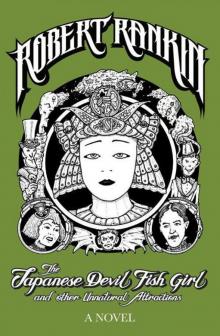 The Japanese Devil Fish Girl and Other Unnatural Attractions
The Japanese Devil Fish Girl and Other Unnatural Attractions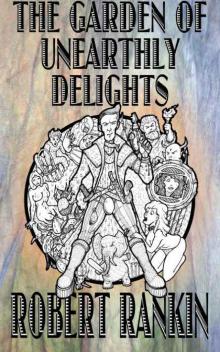 The Garden of Unearthly Delights
The Garden of Unearthly Delights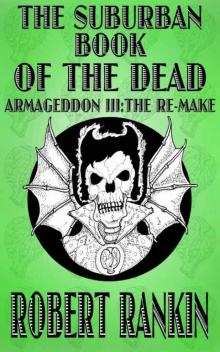 The Suburban Book of the Dead: Armageddon III: The Remake
The Suburban Book of the Dead: Armageddon III: The Remake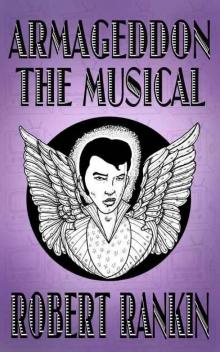 Armageddon_The Musical (Armageddon Trilogy Book 1)
Armageddon_The Musical (Armageddon Trilogy Book 1)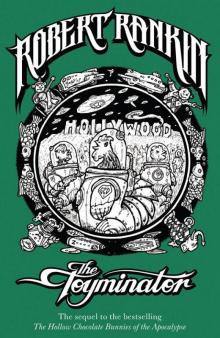 The Toyminator
The Toyminator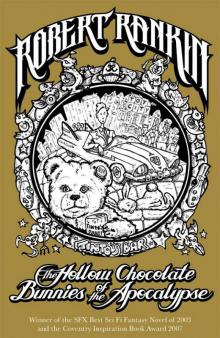 The Hollow Chocolate Bunnies of the Apocalypse
The Hollow Chocolate Bunnies of the Apocalypse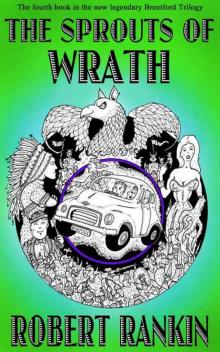 The Sprouts of Wrath
The Sprouts of Wrath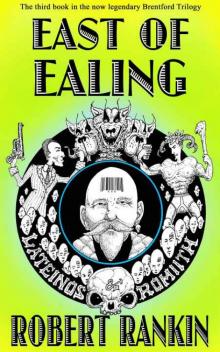 East of Ealing
East of Ealing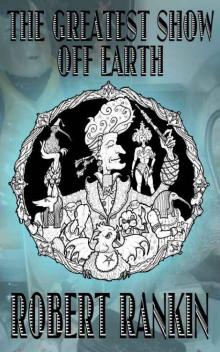 The Greatest Show Off Earth
The Greatest Show Off Earth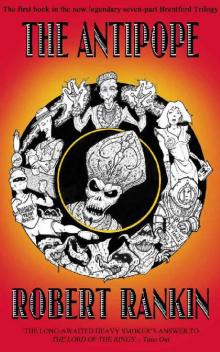 The Antipope
The Antipope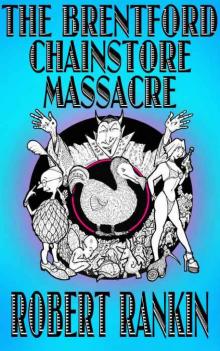 The Brentford Chainstore Massacre
The Brentford Chainstore Massacre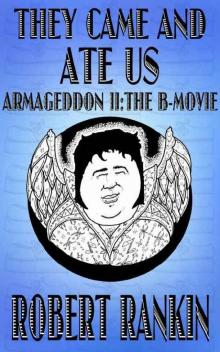 They Came and Ate Us_The B-Movie (Armageddon Trilogy 2)
They Came and Ate Us_The B-Movie (Armageddon Trilogy 2)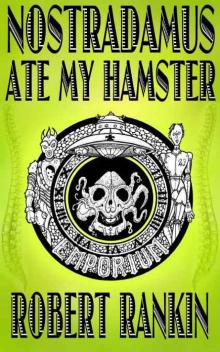 Nostradamus Ate My Hamster
Nostradamus Ate My Hamster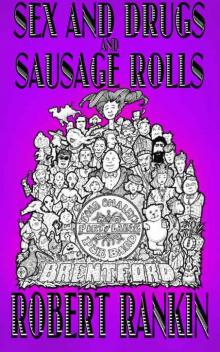 Sex and Drugs and Sausage Rolls
Sex and Drugs and Sausage Rolls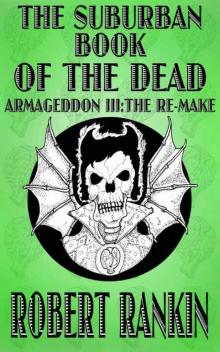 The Suburban Book of the Dead_The Remake (Armageddon Trilogy 3)
The Suburban Book of the Dead_The Remake (Armageddon Trilogy 3)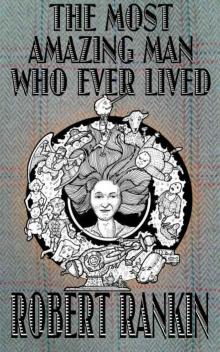 The Most Amazing Man Who Ever Lived
The Most Amazing Man Who Ever Lived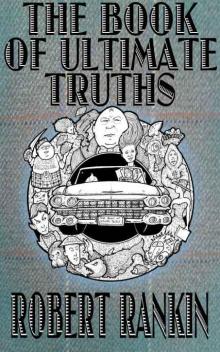 The Book of Ultimate Truths
The Book of Ultimate Truths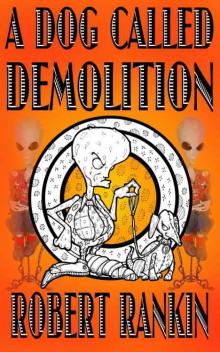 A Dog Called Demolition
A Dog Called Demolition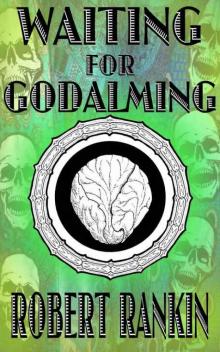 Waiting for Godalming
Waiting for Godalming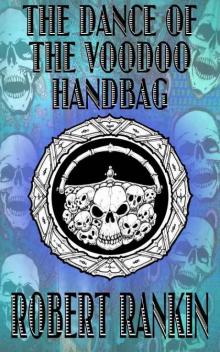 The Dance of the Voodoo Handbag
The Dance of the Voodoo Handbag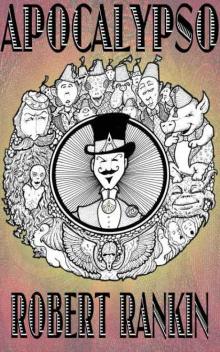 Apocalypso
Apocalypso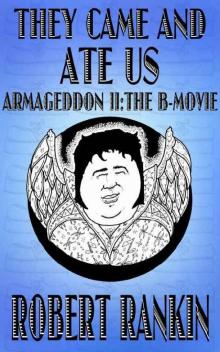 They Came and Ate Us: Armageddon II: The B-Movie
They Came and Ate Us: Armageddon II: The B-Movie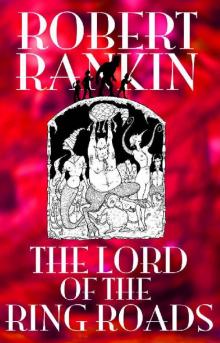 The Lord of the Ring Roads
The Lord of the Ring Roads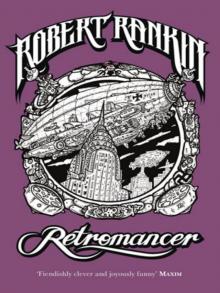 Retromancer
Retromancer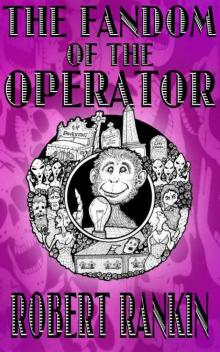 The Fandom of the Operator
The Fandom of the Operator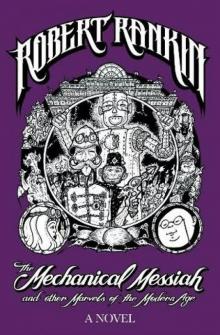 The Mechanical Messiah and Other Marvels of the Modern Age
The Mechanical Messiah and Other Marvels of the Modern Age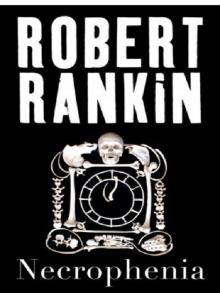 Necrophenia
Necrophenia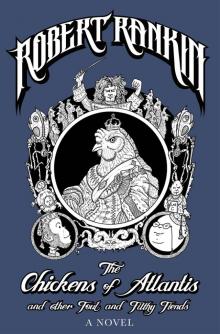 The Chickens of Atlantis and Other Foul and Filthy Fiends
The Chickens of Atlantis and Other Foul and Filthy Fiends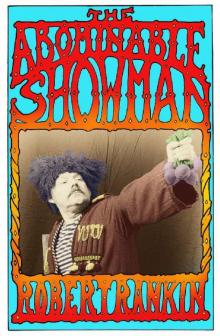 The Abominable Showman
The Abominable Showman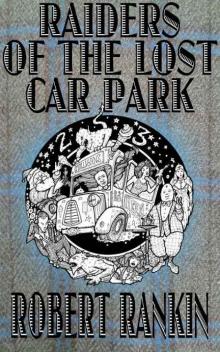 Raiders of the Lost Carpark
Raiders of the Lost Carpark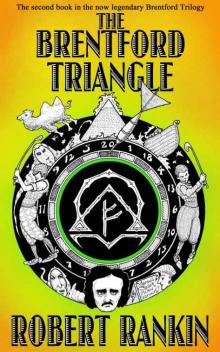 The Brentford Triangle
The Brentford Triangle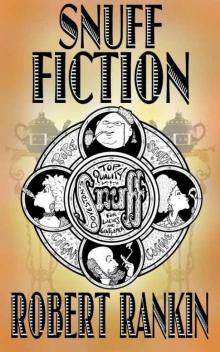 Snuff Fiction
Snuff Fiction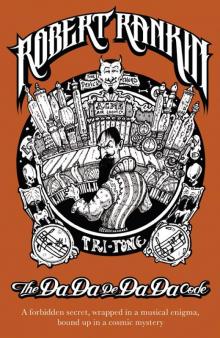 The Da-Da-De-Da-Da Code
The Da-Da-De-Da-Da Code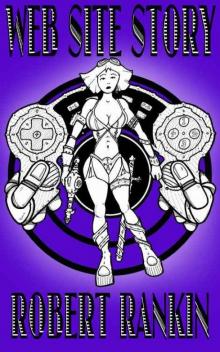 Web Site Story
Web Site Story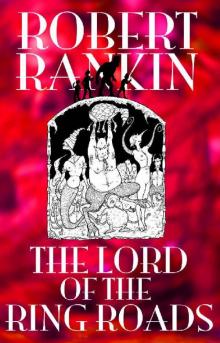 The Lord of the Ring Roads (The Final Brentford Trilogy Book 1)
The Lord of the Ring Roads (The Final Brentford Trilogy Book 1)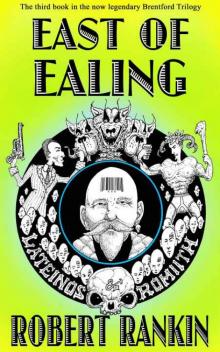 East of Ealing (The Brentford Trilogy Book 3)
East of Ealing (The Brentford Trilogy Book 3)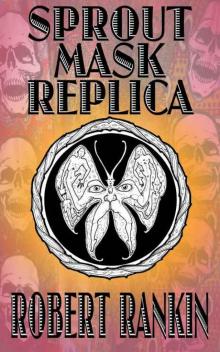 Sprout Mask Replica (Completely Barking Mad Trilogy Book 1)
Sprout Mask Replica (Completely Barking Mad Trilogy Book 1)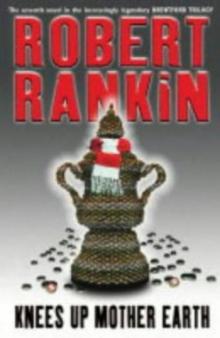 Knees Up Mother Earth bs-7
Knees Up Mother Earth bs-7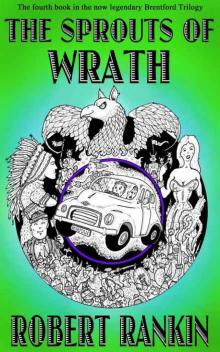 The Sprouts of Wrath (The Brentford Trilogy Book 4)
The Sprouts of Wrath (The Brentford Trilogy Book 4)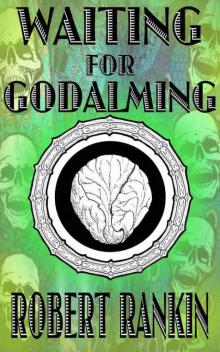 Waiting for Godalming (Completely Barking Mad Trilogy Book 3)
Waiting for Godalming (Completely Barking Mad Trilogy Book 3)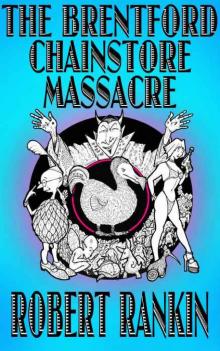 The Brentford Chainstore Massacre (The Brentford Trilogy Book 5)
The Brentford Chainstore Massacre (The Brentford Trilogy Book 5)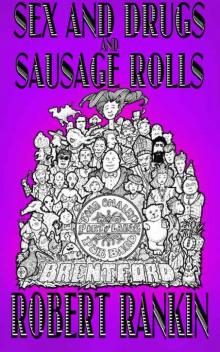 Sex and Drugs and Sausage Rolls (The Brentford Trilogy Book 6)
Sex and Drugs and Sausage Rolls (The Brentford Trilogy Book 6)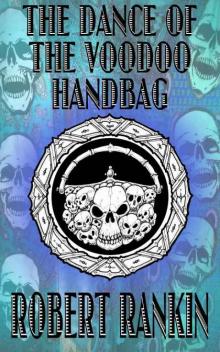 The Dance of the Voodoo Handbag (Completely Barking Mad Trilogy Book 2)
The Dance of the Voodoo Handbag (Completely Barking Mad Trilogy Book 2)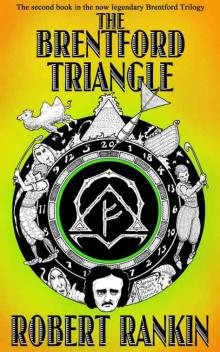 The Brentford Triangle (The Brentford Trilogy Book 2)
The Brentford Triangle (The Brentford Trilogy Book 2)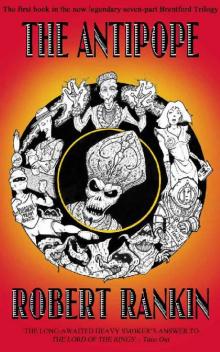 The Antipope (The Brentford Trilogy Book 1)
The Antipope (The Brentford Trilogy Book 1)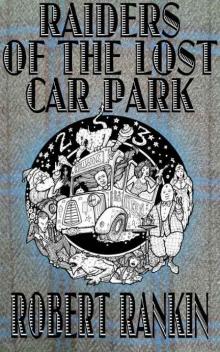 Raiders of the Lost Car Park (The Cornelius Murphy Trilogy Book 2)
Raiders of the Lost Car Park (The Cornelius Murphy Trilogy Book 2)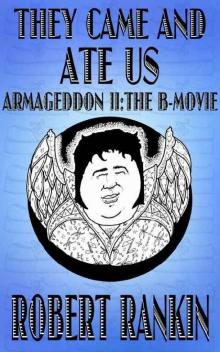 They Came and Ate Us - Armageddon II_The B-Movie (Armageddon Trilogy Book 2)
They Came and Ate Us - Armageddon II_The B-Movie (Armageddon Trilogy Book 2)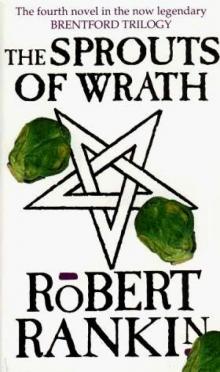 The Sprouts of Wrath bs-4
The Sprouts of Wrath bs-4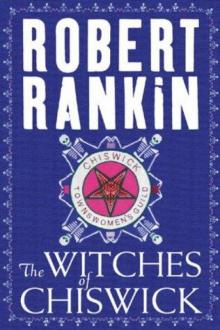 The Witches of Chiswick
The Witches of Chiswick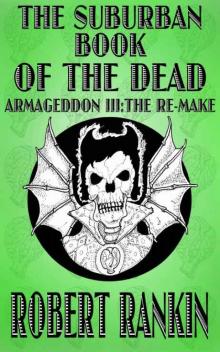 The Suburban Book of the Dead - Armageddon III: The Remake (Armageddon Trilogy 3)
The Suburban Book of the Dead - Armageddon III: The Remake (Armageddon Trilogy 3)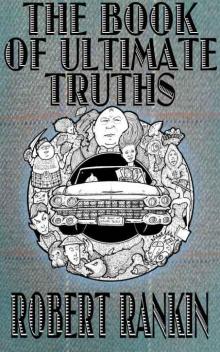 The Book of Ultimate Truths (The Cornelius Murphy Trilogy 1)
The Book of Ultimate Truths (The Cornelius Murphy Trilogy 1)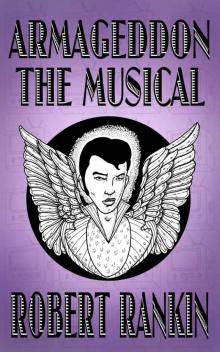 Armageddon: The Musical (Armageddon Trilogy)
Armageddon: The Musical (Armageddon Trilogy)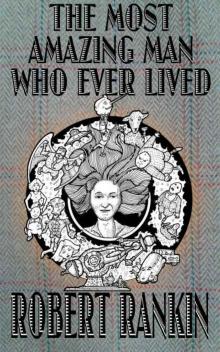 The Most Amazing Man Who Ever Lived (The Cornelius Murphy Trilogy Book 3)
The Most Amazing Man Who Ever Lived (The Cornelius Murphy Trilogy Book 3)